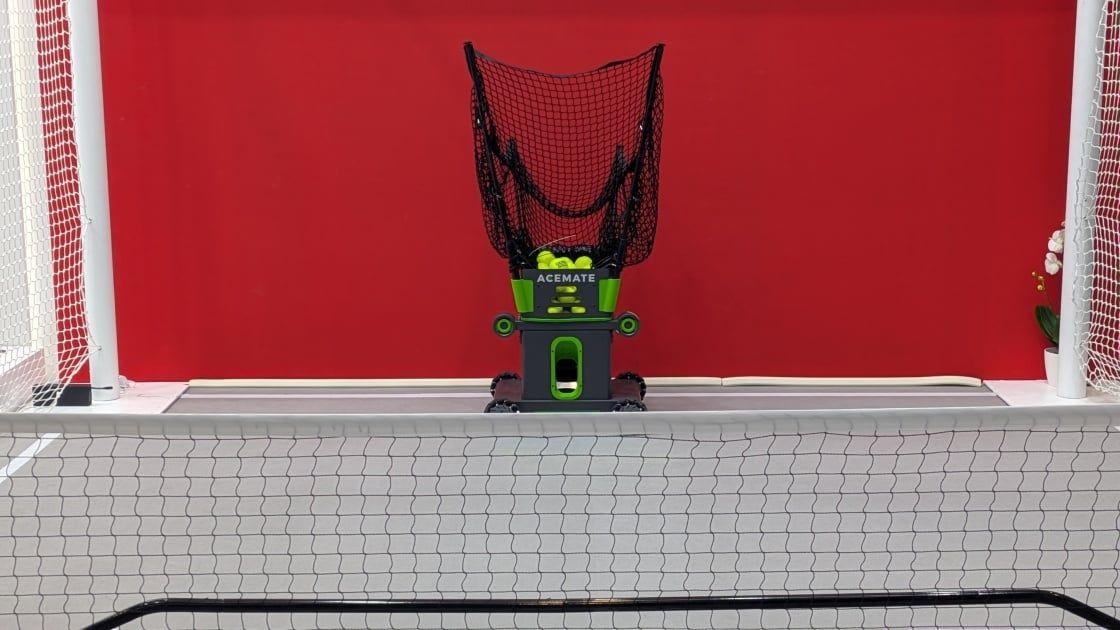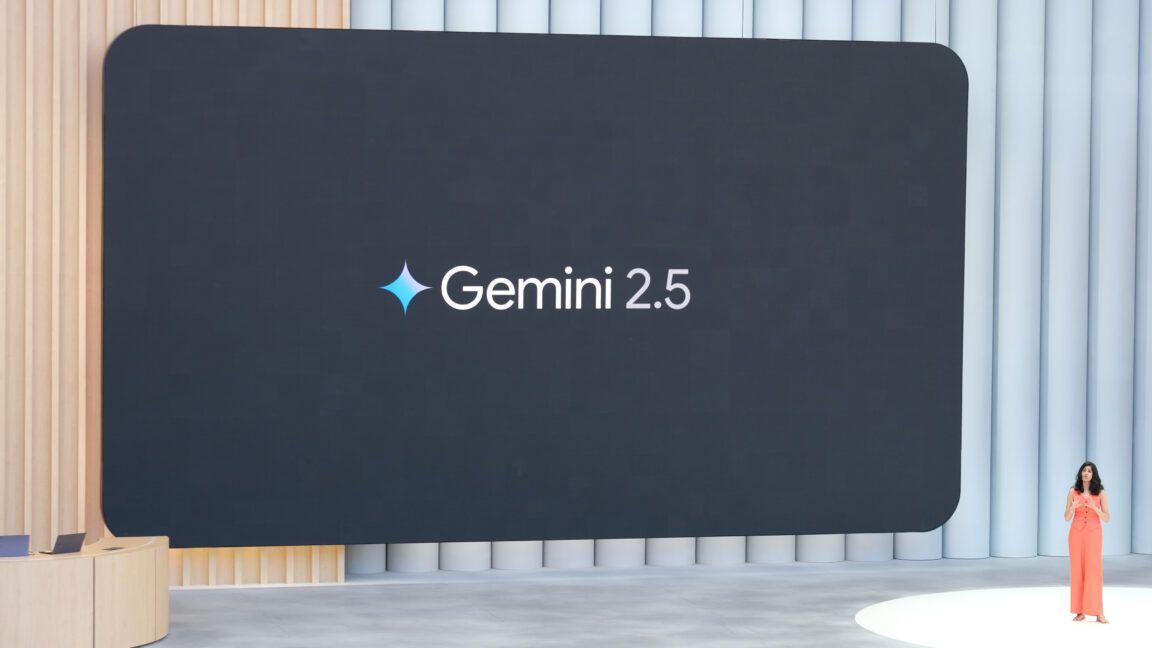Google's DeepMind AI Achieves Human-Level Table Tennis Skills
4 Sources
4 Sources
[1]
Google's DeepMind AI can now play table tennis to a competitive level
Before artificial intelligence takes over the world, it seems it'll beat us at table tennis first: Google has reported on a robot making use of its DeepMind AI that is now able to play ping-pong to an "amateur human level" of performance. The DeepMind lab is where Google works on some of its most advanced AI tech, and we've previously seen plenty of practical DeepMind experiments: everything from AI adding audio to silent videos, to discovering new materials. In a new paper, Google's researchers say their table tennis robot was able to win 13 out of 29 matches played against humans, with its success rate varying on the ability of the players it was competing with (from beginner to advanced). "This is the first robot agent capable of playing a sport with humans at human level and represents a milestone in robot learning and control," write the researchers, though they also say this is only a small step forward in the more general field of getting robots to perform useful, real world skills. Table tennis was chosen as a project by the DeepMind team because of the many different elements involved, from the complex motion physics to the hand-eye coordination that's required to keep hitting the ball back successfully. The robot was trained by focusing on each particular type of shot separately, from backhand spin to forehand serve. This training was then combined with a more high-level algorithm designed to choose the necessary type of shot each time. As you might expect, the robot struggled most with faster shots (giving the AI less time to think about what to do), and the researchers are already thinking about how to improve the system - including how to make it more unpredictable in its play. There's even the built-in ability to learn from the strategies of the human opponent, and weigh up their strengths and weaknesses. The full paper is well worth a read if you're interested in the challenges of AI training and scaling, and how robots might develop the combination of skills required to be useful in physical tasks.
[2]
Google DeepMind's new AI robot plays table tennis at 'human level'
China is currently busy accumulating most of the gold medals in the table tennis events in the Paris Olympics. Meanwhile, an AI-powered robot from Google DeepMind has achieved "amateur human level performance" in the sport. In a study published in an Arxiv paper this week, the Google artificial intelligence subsidiary outlined how the robot functions, along with footage of it taking on what we can only assume were willing enthusiastic ping pong players of varying skill. According to DeepMind, the racket-wielding robot had to be good at low-level skills, like returning the ball, as well as more complex tasks, like long-term planning and strategising. It also played against opponents with diverse styles, drawing on vast amounts of data to refine and adapt its approach. The robotic arm -- and its 3D-printed racket -- won 13 out of 29 games against human opponents with different levels of skill in the game. It won 100% of matches against "beginner" and 55% against "intermediate" players. However, it lost every single time that it faced an "advanced" opponent. DeepMind said the results of the recent project constitute a step towards the goal of achieving human-level speed and performance on real world tasks, a "north star" for the robotics community. In order to achieve them, its researchers say they made use of four applications that could also make the findings useful beyond hitting a small ball over a tiny net, difficult though it may be: The company further added that its approach had led to "competitive play at human level and a robot agent that humans actually enjoy playing with." Indeed, its non-robot competitors in the demonstration videos do seem to be enjoying themselves. Google DeepMind is not the only robotics company to choose table tennis to train their systems. The sport requires hand-eye coordination, strategic thinking, speed, and adaptability, among other things, making it well suited to train and test these skills in AI-powered robots. The world's "first robot table tennis tutor" was acknowledged in 2017 by Guinness World Records in 2017. The rather imposing machine was developed by Japanese electronics company OMRON. Its latest iteration is the FORPHEUS (stands for "Future OMRON Robotics technology for Exploring Possibility of Harmonized aUtomation with Sinic theoretics," and is also inspired by the ancient mythological figure Orpheus...). OMRON says it "embodies the relationship that will exist between humans and technology in the future." Google DeepMind makes no such existential claims for its recent ping pong champion, but the findings from its development may still prove profound for our robot friends down the line. We do however feel that DeepMind's robotic arm is severely lacking in the abbreviation department.
[3]
Watch Google DeepMind robot ping pong player take on humans
Demonstrations - Achieving human level competitive robot table tennis Ping pong seems to be the sport of choice when it comes to tech firms showcasing their robotic wares. Japanese firm Omron, for example, made headlines several years ago with its ping pong robot that could comfortably sustain a rally with a human player, showing off the firm's sensor and control technology in the process. Recommended Videos And with artificial intelligence (AI) recently coming along in leaps and bounds, we're now starting to see more advanced robotic ping pong players that could soon give even the best human players a run for their money. Take this impressive effort from engineers at Google DeepMind. In a new paper titled, "Achieving Human Level Competitive Robot Table Tennis," the team said it's created a "solidly amateur human-level player" that combines AI with an industrial robotic arm -- with a bat attached. A video (top) shows the AI-powered robot making fast decisions to perform an array of backhand and forehand shots. Notably, it's also able to return shots that are served with light spin, demonstrating an ability to read the spin on the ball, adjusting the way that it hits the ball accordingly. It's also able to handle the ball coming at it at high and low speeds, from all parts of the table, as well as balls coming at it from a considerable height after taking a big bounce on the table. It really is very impressive. "Achieving human-level speed and performance on real world tasks is a north star for the robotics research community," the researchers said in the paper. "This work takes a step towards that goal and presents the first learned robot agent that reaches amateur human-level performance in competitive table tennis." Through a series of test encounters, the robot won 100% of the games that it played against human beginners, and 55% against intermediate players. However, there's clearly plenty of room for improvement as it lost all of its games against advanced players. Overall, the robot won 45% of the 29 games it played.
[4]
Google AI robot beats humans at table tennis, wins 45% of matches
The system includes an ABB IRB 1100 industrial robot arm combined with DeepMind's custom AI software. Google DeepMind has introduced the first AI-powered robotic table tennis player capable of competing at an amateur human level. The system features an industrial robot arm, the ABB IRB 1100, integrated with custom AI software from DeepMind. The robot's performance was tested in 29 matches against unseen human players of varying skill levels. It won 45 percent of the matches overall. It lost to all advanced players but won 100 percent against beginners and 55 percent against intermediates, showcasing solid amateur-level ability. "This work takes a step towards that goal and presents the first learned robot agent that reaches amateur human-level performance in competitive table tennis," said researchers in the study.
Share
Share
Copy Link
Google's DeepMind has developed an AI-powered robot capable of playing table tennis at a competitive level. This breakthrough demonstrates significant advancements in robotics and artificial intelligence, showcasing the potential for machines to master complex physical tasks.

DeepMind's Table Tennis Robot: A Leap in AI and Robotics
Google's DeepMind has achieved a remarkable milestone in the field of artificial intelligence and robotics by developing a robot capable of playing table tennis at a competitive level. This breakthrough represents a significant step forward in machine learning and physical task mastery, demonstrating the potential for AI to excel in complex, real-world activities
1
.The Technology Behind the Robot
The table tennis-playing robot utilizes a combination of advanced technologies to achieve its impressive performance. At its core is a large language model (LLM) that has been trained on vast amounts of data, including information about table tennis techniques and strategies. This model is coupled with a vision system that allows the robot to perceive and track the ball's movement in real-time
2
.The robot's physical form consists of an arm equipped with a paddle, mounted on a mobile base. This setup enables the machine to move around the table and execute a wide range of shots, mimicking human players' mobility and adaptability
3
.Training Process and Achievements
DeepMind's researchers employed a novel training approach called "iterative refinement" to develop the robot's skills. This method involves breaking down complex tasks into smaller, more manageable components and gradually increasing the difficulty as the AI improves. The robot was trained using both simulated environments and real-world practice sessions
1
.The AI-powered robot has demonstrated remarkable abilities, including maintaining rallies for extended periods and executing various shots such as topspins, backspin, and smashes. In tests against human players, the robot has shown performance levels comparable to those of skilled amateurs
4
.Implications and Future Applications
This achievement in robotic table tennis has far-reaching implications beyond the realm of sports. The technologies and methodologies developed for this project could potentially be applied to a wide range of tasks requiring precise motor skills and real-time decision-making. Industries such as manufacturing, healthcare, and even space exploration could benefit from these advancements
2
.Related Stories
Challenges and Limitations
Despite its impressive capabilities, the DeepMind table tennis robot still faces certain limitations. For instance, it may struggle with adapting to unexpected situations or highly strategic play from advanced human opponents. Additionally, the current setup requires a controlled environment, which may limit its immediate real-world applications
3
.Ethical Considerations
As AI and robotics continue to advance, ethical considerations come to the forefront. Questions arise about the potential impact on human jobs, privacy concerns related to data collection for training these systems, and the broader societal implications of increasingly capable AI systems
4
.References
Summarized by
Navi
[3]
[4]
Related Stories
Recent Highlights
1
ByteDance's Seedance 2.0 AI video generator triggers copyright infringement battle with Hollywood
Policy and Regulation

2
Demis Hassabis predicts AGI in 5-8 years, sees new golden era transforming medicine and science
Technology

3
Nvidia and Meta forge massive chip deal as computing power demands reshape AI infrastructure
Technology








